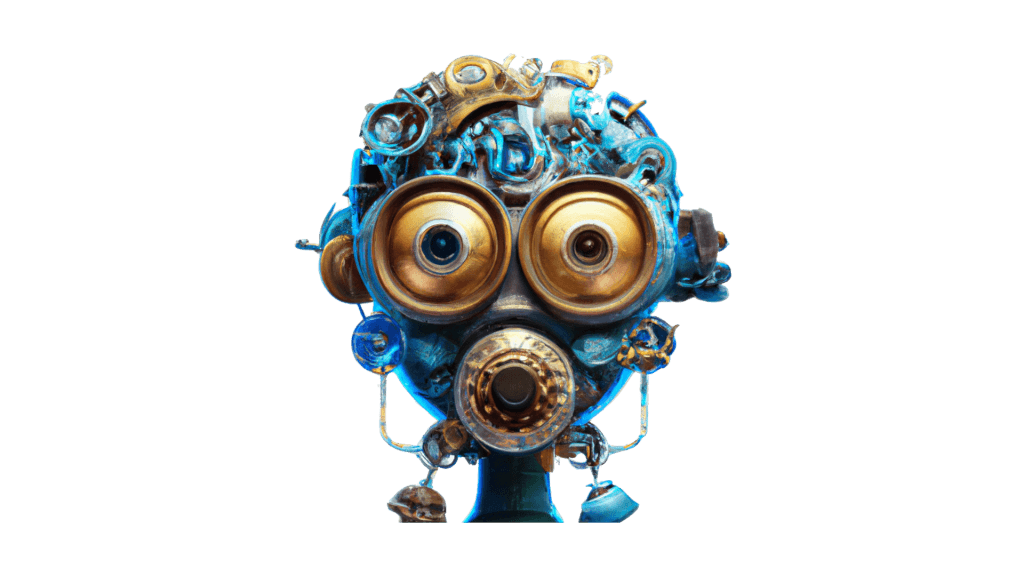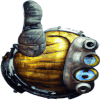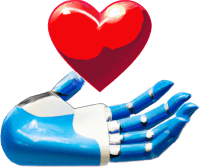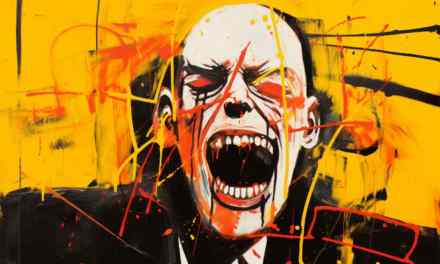Everybody thinks that bartenders steal. You know what? They’re right. Maybe there’s an upright bartender someplace where it’s all parking lots and cornfields and traffic lights flashing yellow, but I doubt it.
So what do we steal? We might pocket some of the tips we’re supposed to split with other bartenders or the dishwashers in the back of the house. Or we might steal from the boss. We sure as hell steal from the government when we lie about our actual income. But it’s not just money—we steal time, too. Watch some guy sliding off a barstool at closing, and you’re seeing a sucker we’ve taken for two, three, four hours of his one and only life. That’s time he’ll never get back, time he likely won’t even remember losing. I’d been pulling beers since before Clinton met Lewinsky, so I was ready to come out from behind the stick with no regrets, no looking back. When you own a bar, however, you’re stuck with the kind of baggage that doesn’t travel. Even though I’d been sober since the divorce, two years and counting, I had to live with the burnt toast smell of cheap bourbon, the sticky oak floors and the wobble and snort of strangers who wanted to tell me that I was the brother they never had. If I stole whatever from whoever, like all my fellow bartenders, The Strange Brew Pub was stealing my life from me.
Which is why I was miserable that night. It was a Wednesday—our Whiskey & Wings night—and I had the game on the widescreen in the main room and Comedy Central on the old plasma in the annex. The Red Sox were down two in the fifth and were playing like their shoelaces were untied. There was my usual upscale crowd, a couple of suits postponing family obligations, more couples than usual. The whiskey was flowing and we’d run out of wings; Dana was pushing our mini chimis. The hardcore at the bar had already gone through the night’s ration of free chips and salsa.
“So the professor goes, ‘And how many of you believe in ghosts?’ About half the class raise their hands.” Cal Overton was telling one of his endless stories to some bored former hippie with a graying ponytail.
“I need a Jack and Jill for table four.” Dana set a tray filled with empties on the bar. “Ten Penny, Magic Hat, and Harpoon IPA pints.”
“‘How many of you have even seen a ghost?’ says the professor.” Cal was already leaning and it was only quarter to ten. We knew that he frontloaded his buzz before coming in, so he could nurse a Smutty or two all night. Dana glanced at her checks. “Hey Chaz, what’s a Stinger?”
“A duo,” I said. Dana was twenty-three, new to the job and the wonderful world of cocktails. “Brandy and white crème de menthe. Sweet.”
“Okay then,” she said. “Straight up. For table six.” Which was around the corner in the annex, just out of sight of the bar.
“That’s it? Just the one?”
Dana shrugged. “Solo, says she’s waiting for somebody.”
“That’s a big table. Give her a menu.”
“Then the professor goes, ‘Anybody here ever slept with a ghost?’” Cal giggled. Silence. “Nothing. So finally this redneck kid . . .”
Ponytail Guy checked his watch and then made eye contact with me. He pushed his glass across the bar, palm pressed to the rim. I nodded so he’d know that I’d seen and would cash him out. I measured three jiggers of brandy from the well into a shaker, then free poured the jigger of liqueur. Best to go light on the crème de menthe or the thing will taste like NyQuil. Stingers are pure nostalgia—Mad Men drinks. I’m pretty sure there’s an old Sondheim song that mentions them. It was a cocktail that meant something to me, once upon a time.
“‘That’s amazing,’ says the professor. ‘You have to tell us more, because in all my years here, not one student has ever admitted to sleeping with ghosts.’”
I rang Ponytail Guy up for a couple of G&Ts: $14.34 with tax.
“And the kid goes ‘Ghosts? I thought you said goats.’” Cal Overton was the only man I ever met who could guffaw. The synchronous bob of his Adam’s apple and his gut was accompanied by a soggy cough, as if he’d just swallowed a sponge.
I gave Ponytail Guy a sympathetic shrug, slid him his check and, on a whim, ducked under the gate of the bar. I wasn’t going to deliver the Stinger myself, I just wanted to see what kind of woman would order such an old fashioned drink. Probably a twenty-something being ironic.
Even though I only saw her from behind that first time, I knew right away. It was the hair mostly: silky, almost limp, brushing the base of her neck, the color of the straw in the barn where we’d first made love. But it was also the way she held her body: waiting but gathered for flight. She didn’t like to be stood up, my Adele.
Except this couldn’t be Adele, because this girl was twenty-something and my ex was getting invites from AARP. I could tell she was young from the shoulders, which had never borne the weight of overdue bills or a curdled marriage. She was wearing a black tank top and the spray of freckles on her pale arms was so familiar that it took my breath away. She cocked her head and I had just a glimpse of the swell of her cheek, the tip of her nose. I felt a dangerous champagne fizz at the back of my head. No way could I possibly know anything about this girl, but I already had one foot over the precipice and was leaning into the fall.
Spooked and back in love at the same time.
But the bar called, as it so often did—this time with a shout of rage.
“Sorry, s-sorry!” Then I heard Cal’s slurred, shivery plea. “No, let me pay that. Least I can do.”
The other voice was hot. “Get away from me.”
Reluctantly I turned away from my life to see the two of them off their stools. The front of Ponytail Guy’s shirt was soaked. Cal made as if to dry him off with one of our pathetic bar napkins and got his hand slapped away.
“Okay, okay,” I said, stepping between them. “No need to get personal. Accidents happen.” Dana had Cal’s elbow, tugging him to a neutral corner. Out of the corner of my eye, I saw my barback-slash-bouncer Hilly threading through the tables to us. “I’m very, very sorry, sir.”
“That asshole.” Ponytail Guy still seethed, but at least he focused on me and not Cal, who had wilted into Dana. “He’s shitfaced and you’re still serving him?”
“You’re right and I apologize.” My voice was on its knees. “I can see the problem now. He needs to go home. We’ll get him there.”
The man considered, then his ponytail bobbed. “Okay then.” The temperature in the room dropped. “An accident. Just took me by surprise is all.” The rest of the customers returned to the drinks. “I guess I need a shower.”
“Your tab is on me, sir. Again, I’m very sorry.” I watched him through the door. Maybe he was able to wash away that night, but I sure wasn’t. When I glanced into the alcove again, the girl who couldn’t be my ex-wife was gone.
* * *
Not only did I work at The Strange Brew, but I lived there too. When Adele and I bought the building with the money her mom left us, living over the bar had seemed like a smart move. We spent twelve years after that working to build our business, even as our marriage was going bankrupt. Looking back, I realize that I was already an alcoholic when I met her. By the time we were ready to split, we were both raging drunks. It snuck up on us; we made jokes about our drinking right up until it wasn’t funny anymore. We both hit bottom on the night she pitched down our apartment stairs and broke her arm. Only she didn’t fall, I pushed her. At least I think I did; I was shitfaced at the time. I’ve tried to convince myself that it wasn’t on purpose, but what’s the difference? If she hadn’t been a blackout drunk, she would’ve ratted me out and I would’ve done time for assault. Should’ve done.
We were already lawyered up at that point. Five months later she was sober, and I was trying to be, and we were divorced. Adele said she needed to leave the bar behind, and although I was sick of it too, I was so wracked with shame that I agreed to her settlement offer. As punishment for my sins, I got custody of the building and she filled the trunk of the Camry with $600,000 from my brand new second mortgage. It was my final present to her: a clean escape from our miserable life.
She left lots of stuff behind: furniture, most of her clothes, photos, skis, her Carly Simon CDs, even her great-grandmother’s Fabergé silver and enamel clock, which we’d once had appraised for $40,000. I’d kept it all, even though I hated living with it. I figured that if she ever asked about her stuff, I could hand it over to make my amends.
It was a swell apartment, even if it was the Museum of Our Broken Marriage. The building had been converted from a townhouse in the 1880s. I had five airy rooms with tall windows facing west. The place had pocket doors and a tin ceiling. The dining room featured a hipped copper-frame skylight over Adele’s showpiece Matsuoka table, currently strewn with notebooks and the stacks of pages that I laughingly called my “drinking memoir.” My shrink had started me journaling as a step on the road to sobriety. I’d spent the last eighteen months writing about my old life instead of starting a new one. Even though the apartment was too big for just one person, whenever I brought someone home to share it, the place seemed to shrink.
My bedroom had a queen-sized bed and a king-sized Sony flatscreen; its decorative balcony looked onto Washington Street. The balcony was too narrow for sitting, but I’d replaced the original windows with a slider. When the weather was right I could perch on one of Adele’s pricey dining room chairs, half in and half out of the apartment. Which wasn’t that often, considering the brutal winters and annoying drone of AC in the summer. But that May night, a few days after I first saw her, I was letting the cool wash over me as the city slept. I like to wind down after closing and, since I don’t smoke, I would sit and write to keep from thinking about all the bottles calling me downstairs to the bar. It suited me fine when there was nothing to see but the traffic light cycling from green to yellow to red, nothing to hear but the clatter of lonely cars.
Except that night there was singing.
I followed “Will You Still Love Me Tomorrow” into the kitchen. She was sitting at the breakfast table, peeling an orange. I hadn’t bought an orange in years. After she moved on, I switched to grapefruit.
“Hello Chaz,” she said. “Long time.”
This was where I had to decide whether I was dreaming or crazy or whether decades of single malt abuse had finally caught up to me. I dropped into a chair.
“Hi yourself, Adele.”
She didn’t correct me; her attention stayed with the peeling. She could skin even the thinnest Valencia in one continuous spiral, clever fingers caressing the moist flesh, fingernails drawing just a few glittering beads of juice. She was wearing white bellbottoms and a floral print blouse with droopy sleeves. She was barefoot, twenty-three if she was a day, and as gorgeous as when we’d first met.
“So?” I said.
She wrinkled her nose the same way she always did when she was annoyed. “So what?”
“So,” I said, “are you real? How did you get in? Why are you here? Does God exist? Do the Sox have enough pitching?”
She tucked her chin to her neck to hide her smile. “Funny.” She separated a section from the orange. “Still with the jokes.” She sucked the orange slice into her mouth and grinned at me.
“You’re dripping.” I said, watching the juice bead on the table. “Would you like a plate?” I pulled one out of the cabinet and slid across the table to her.
She set the orange on it and separated the sections; the kitchen seemed to fill with its fragrance. “Are you glad to see me?”
“Am I seeing you?”
She offered me a piece of her orange; I leaned toward her and opened my mouth. She slipped it in and before she could get away I brushed my upper lip against her cool fingertip. She was definitely there.
“You’re dripping.” She got up and tore a paper towel from the roll above the sink. “She’s drinking again.”
“Adele?”
She nodded.
“Where is she?”
“In town somewhere.” The girl waved vaguely at the windows. “She’s been sleeping at Maureen’s.”
“But you’re Adele. Unless you’re not real.”
“Are you real?”
“Near as I can tell.” She had always made me take these little tests—her version of flirting. I liked them at first, but they got old. Or maybe we got old. “When I go downstairs for my shift, people see me. I fill glasses and put them on the bar. I sign checks. I get wet when it rains and I stink if I don’t take a shower. I’m more or less someplace every minute of the day. So she’s drinking. What business is that of mine?”
“You can fix her.”
“I was barely able to fix myself. Seeing you makes me think I botched the job.”
“I don’t want to be her.”
I didn’t know what to say to that. This ghost—wait, can there be a ghost of someone who isn’t dead? This phantom, this spook didn’t want to be who? I understood what she was asking, sort of, but that train left the station in 1994, right after I mixed Adele her first Stinger.
“Listen, kid. The one thing they teach you about drunks is that you can’t make them change.”
“You broke her, so you fix her. That’s what’s real.” And with that she got up and walked out.
As I watched from my window I could see her step onto the street. I wanted her to turn into mist and disappear. That way I could stop wondering if I was nuts, stop remembering how much I had loved this woman once upon a time. Besides, there was no way I could give her story a happy-ever-after ending. At the corner, she glanced over her shoulder and pointed up at me. Our little ritual: We never waved hello or goodbye. We pointed.
I pointed back at her. “Sure,” I muttered. “And then I’ll get to work on world peace.”
* * *
I’d known Maureen Flannery longer than I had known Adele; we’d graduated Southie a year apart. Maureen used to write the Citysights column for the Boston Globe before all the newspapers wandered off to the internet to die. Someone told me that she was in online reputation management now, whatever that was. She was one of the friends I’d lost in the divorce, but I hoped we were still on speaking terms. I gave her a call the next morning.
“Yeah, she’s passed out on my couch. You want me to wake her up?”
“Passed out as in passed out?” I used to get these sick churns of panic whenever my drunken memories of the night before snapped into daylight focus. No hangover this time, but I felt the familiar dread. Not only had the spook been real, she’d called my ex’s relapse. “Is it bad?”
“Nothing that a winning lottery ticket and a summer in rehab couldn’t cure. What do you want with her, Chaz?”
I wished I knew. “I heard she was in town.”
That got me nothing.
“I really don’t need to disturb her just now,” I said. “I just thought maybe . . . tell her that I still have her things. Ask her what she wants me to do with them.”
“Ask her yourself. Invite her out for drinks. She’ll have four before you finish your first.”
“I’m sober, Maureen. You know that.”
“Yeah, sorry. Just looking for someone to take her off my hands . . .” She sighed. “When?”
I considered. “Scheduled myself to work at three.” It was almost eleven. “Could I stop by soon?”
“I’ll throw her in the shower. Give me half an hour—maybe she’ll drown and save you the trip. You remember the place?”
I did, but when I got there, Adele was gone.
“When she heard you were coming, she dressed and left.” Maureen ushered me into her tiny living room. “Says she doesn’t want her stuff, doesn’t want anything to do with you. So, what? She owes you money too?”
I shook my head. “I had no idea she was in trouble.”
“I suppose I should thank you for chasing her off.” Her expression was stony. “I never thought I would say this, but you’re probably better off without her. I’m thinking I am.”
“You introduced us.”
“My bad.” She grimaced. “Adele shows up a couple of days ago, all she’s carrying is a purse and a plastic Stop and Shop bag. Claimed the airline lost her luggage. That was bullshit. Here, look at this.” Maureen had an efficiency in the North End—nice place if you were into claustrophobia. She stuck overnight guests on a lumpy sleep sofa to discourage long stays; I’d spent a few backbreaking nights on it during the drunk decade. There was a hole burned onto the near arm, the size of a lit cigarette that had never found an ashtray. “Smoking in bed and didn’t have the nerve to tell me. Cost five hundred to have this thing reupholstered last fall.”
“Jesus, that’s really out of control.” I peered at the burn to be sociable. “Did she say when she’s coming back?”
Maureen didn’t reply. She went to a window and gazed down at Clark Street. The North End was coming back to life now that the eleven o’clock Mass had let out from St. Stephen’s. “You know,” she said, “back when I got my column, I would’ve called her my best friend. She says that late last night, but only after getting totally fucked up. I’m her best friend, she says. Still.” Her laugh sounded like a cough. “And then she asks for a loan. Five thousand. Loan, like I’d ever see it again. I should cross her off the list, Chaz. There’s friendship and then there’s stupidity.”
“Why don’t you?”
“Somebody called, told me she was coming, that she needed help.” She tapped a finger against the glass as though trying to get the attention of a passer-by. “She reminded me of my responsibilities, this somebody.” She was musing to herself; I wasn’t part of the conversation. “Wasn’t somebody I could just ignore.”
“This somebody,” I said, “was she strange?”
She started, as if she had forgotten I was in the room. “Strange?”
I felt my mouth stretch. “As in impossible.” Maybe it looked like a smile, although I certainly wasn’t feeling very happy. “You talked to her, didn’t you? Young Adele. The spook?”
“You’re in on this too?” Maureen’s shock gave way to anger. “Is that what this is?” She thrust both hands into my chest. “Again with the two of you taking advantage of me? Like I haven’t already done enough?” She pushed hard enough to stagger me. “Get out.”
“Maureen, listen . . .” As I backed away, I tripped over a wicker magazine rack and sprawled onto my ass.
“You’re drunk. Can’t even stand up straight.” She grabbed her phone and aimed it at me like a gun. “I’ve got 911 on speed, shithead. Get out or talk to the cops.”
“Okay, okay.” I hauled myself up and retreated to the door. “But I know it’s scary but I swear, Maureen, I . . .”
She winged an ashtray at me as encouragement to leave. “Five, four, three . . .” As I escaped, she shouted, “And when you see my best friend, tell her to fuck off and die.” She kicked the door shut.
* * *
We used to go barhopping, Adele and I, since no one saloon can encompass the glorious universe of drink. Sure, if you’re in the business, you want to check out the competition, steal ideas. But we barkeeps are a welcoming lot, especially when we greet our own. Swapping stories about customers is the code through which we pass the secrets of the trade. How to sort the happy drinkers from the hopeless. When to listen and how to forget. What to say to the mirror in the men’s room after a hard night behind the stick. But it’s different when you’re an exile from the fellowship of ethanol. When everyone around you has had at least one pop, probably many more, your sobriety means you’ve decided not to join the party. You’re there under false pretenses. After all, how many drinking establishments specialize in club soda with a twist?
So it had been a while since I had checked the local bar scene. I guessed that Adele would be drinking that night and hoped she might wander through some of our old favorites. It would have been an impossible search otherwise. Drunks have plenty of options. Boston has issued six hundred and seventy-five full liquor licenses at last count, three hundred and fifty-five for beer and wine. Of course there was no guarantee that I would pick the right place at the right time, but I had to try. How long would Adele stick around now that Maureen had turned on her?
Back when we were still drinking together, we would often start a pub crawl with tapas at Toro. I picked at a kind of seafood stew they called suquet de marisco for about an hour and then walked to the Beehive, where some street funk band was playing that I knew would drive Adele crazy. Fred Hingle at the Double Down had an ABCC hearing coming up for serving a twenty-year-old Northeastern student who showed a fake driver’s license. Fred said he was finally going to cough up the grand for one of those ID scanners. Yawky’s was pushing the new drink Gulliver had dreamed up called the Big Papi, which was a mojito made with maple syrup. Gabby had finally retired because of her bad hip but Geno was still working every other night at the Old Town Tap. Nobody had seen Adele. It was already past midnight when I decided to try the dive bars. There were cop cars and an ambulance outside of Rose’s so I kept going down Tremont to the Two Way Lounge. She was slumped in a booth at the back.
“She staggers in, orders a Stinger.” Helena Borisyuk leaned over the bar and whispered to me. “I said I didn’t think so. Then she lights a cigarette and I make her put it out. I thought she might cry.” Helena had worked for us back in 2006 until she left to chase down her ex, who had spirited their son back to Ukraine. “She’s been a statue ever since, not moving, maybe fifteen-twenty minutes. Kind of spooky.”
Adele—my Adele—was gray and haggard and frayed, like a bar rag that had been wrung out one too many times. She was thinner than I remembered her, but not in a good way. She was wearing a white, unbuttoned sweater over a blue shirtdress. She was clean and looked vaguely put together—sort of a Goodwill makeover. There was a crumpled pack of Newports on the table in front of her. She sat in the booth with hands clasped, staring into a parallel world where the drinks were on the house and ice cubes never melted.
“Evening, Adele,” I said.
No reaction.
I knocked on the table and said it again. Not even a twitch.
“See what I mean?” Helena hovered behind me, still whispering for no good reason. She could’ve shouted into a bullhorn and Adele wouldn’t have noticed. “I don’t want to call the cops.”
“No, they’re busy.” I considered. “Make me that Stinger.”
She goggled at me. “I can’t serve her, Chaz.”
“You’re serving me,” I said. “Don’t worry, it’s just bait.” I trailed her back to the bar. Helena shook the drink over ice, poured and reluctantly pushed the glass toward me. I pushed two twenties back. “For pain and suffering.” I said.
I slid into the booth next to Adele, waved the drink under her nose and then pulled it back.
She turned just enough to blink at me. “You.” She shook herself into the real world. “I’m a mess.”
“Are you?”
“Take a look.” She straightened with a languid sneer. “What do you see?”
Drunks have an infinite capacity for self-pity; I wasn’t in a mood to feed Adele’s. “I see a woman who doesn’t know what time it is or where she’s spending the night. Probably doesn’t care.”
Her grin was so lopsided it almost slipped off her face. “Got that right.”
“Who probably won’t remember this conversation in the morning.”
“Nope.” She pointed her forefinger at me. “Uh-uh. Wrong there.” Then she surprised me by dipping the finger into the glass I was holding. She took her time sucking it clean, making the suggestion so obvious that even Larry Flynt would’ve been embarrassed. “You don’t drink Stingers, Chaz.”
“I don’t drink period, Adele. Not anymore.”
“Then handle that over here.”
“You want to get our friend Helena fired?”
“Bitch.” She cut her eyes toward the bar. “Not my friend.”
“Listen, you can’t get served, Adele. Here or anywhere.”
“Think so? Night’s young.”
“Tell you what. Come with me and I’ll let you have this one once we get to the sidewalk.” I gestured with the glass. “We can take it back to the apartment.”
“Ohh, what’s there?” She was still going for lascivious, but drooping eyelids made her look pathetic.
“The place you’re going to spend the night.”
“Hear that, bitch?” she called, pointing at Helena. “Ref calls that a forward pass.” Adele grabbed her smokes and bumped toward me on the seat. I scooted over and stood, holding the Stinger, to let her out. She swiveled her legs out of the booth and then tapped a foot against the floor as if to make sure it was still there. With a grunt, she heaved herself upright—and promptly lost her balance.
I caught her with my free arm as I deliberately spilled the Stinger on the floor. “Oops,” I said. We both stared at the puddle for a beat, breathing in the sharp, minty scent.
“Helena, we need a mop over here.” I set the empty on the table.
Adele squinted at me. “Not fair.”
“I’ll make it up to you.” I aimed her at the door. “Wait, where’s your purse?”
“Lost.” She let an arm flop carelessly and cackled. “Like me.”
* * *
Driving home with my ex slumped like an old laundry bag against the door of my Tacoma, I started to count all the wrong turns I’d made in my life. Somehow, I realized now, getting married to her hadn’t been one of them. Seeing the other, younger Adele made me realize that what we had at the beginning was good and true. Yes, we had stolen that from each other, but most of our troubles had been caused by the disease we shared. This wreck wasn’t who Adele was—or was supposed to be. But if I felt sorry for her because of her alcoholism, then I had to feel sorry for myself as well, which did nobody any good. I figured that I owed this woman something more than pity. I just didn’t know what.
“It’s her.” Adele’s breath fogged the passenger window. “She sent you.”
“Not exactly.” I’d thought she had passed out. “Maureen’s pretty pissed at you.”
“Not her.” She jabbed a finger at the window and drew a crooked face in the fog. “That fucky little shit.”
“Who?” I squeezed the steering wheel to keep from driving into oncoming traffic.
“Miss Nobody Never Was.” Her moan came from deep within her. “Leave me alone.” She scoured the face away with her fist. “She thinks it’s so easy. Young and stupid.”
“What are you talking about?”
“She made her choices.” Her voice would have fit in a thimble. “My choices.”
“Adele?”
But she let her head droop, making dry, crushed whimpers. I thought she might be crying, but no tears came. She didn’t speak for the rest of the ride.
At first I thought I was going to have to carry her up to the apartment, but she rallied when I parked the truck in our spot in the alley.
“Home again, home again, jiggety-jig.” She rubbed the heels of her hands into her eyes. “Just in time for a drink.”
I steered her up the stairs and fumbled for the key. She seemed to expand as she went through the door.
“Swell place.” She spread her arms and twirled like Julie Andrews in The Sound Of Music. “Airy. View. Smart colors.” Then she tripped over the floor and careened into the Baker sofa she’d bought just before we separated. “Like your taste in furniture.” She smeared a finger across the face of her great-grandmother’s Fabergé heirloom. “Nice clock.” She cupped her hand around an imaginary tumbler and shook it for a refill. “So, barkeep?”
“So what?
Her expression darkened. She lurched into the kitchen, opened the cabinet where we used to keep the bottles and gaped in horror at Shredded Wheat, Raisin Bran, Cream of Wheat, and six flavors of instant oatmeal.
“Lying sack of shit. Where’s my drink?”
“I said I was sober. Maybe you missed that part. But I have coffee. Plenty of Diet Coke.”
“Fuck.” She shook a cigarette out of the pack, turned on the gas stovetop and bent to light it. “Whatever.” She took a deep drag off the Newport and talked weary smoke at me. “Give me something to hold.”
I pulled the tab on a Diet Coke and poured half of it into a red plastic cup. Then I rummaged through the drawers until I found one of her old ashtrays.
“What’s this?” Adele had settled at the dining room table and had flipped one of my journals open. “Writing a book?”
“Yeah,” I said. “A horror story.” I set the glass and the ashtray in front of her. “Not sure how it comes out.”
“Kills the wife, grinds her up. Serves meatballs to the cops.” She wrapped her hands around the drink. “Happily ever et cetera.”
“Nah, it’s been done.” I swept my papers and journals into a messy pile on the far side of the table.
“Want to kill me, Chaz?”
“Why bother? You’re doing a pretty good job of it yourself.”
“So judgmental.” She picked up the cup and watched it all the way to her lips with the elaborate precision of someone who had spilled more than a few. “Did you ever love me?”
“Sure.” It was easy to say because it was the truth. The journals were full of it, if she ever wanted to read them. “How about you?”
She giggled and started to hum “They Can’t Take That Away From Me.” Singing was how she used to make up after a fight, but this wasn’t the time. She swirled soda in her cup and then pushed it away from her. “So, Chaz, what’s next?”
“Nothing,” I said. “You spend the night, sleep this one off.” Seeing her brighten with expectation, I pointed. “On the couch.”
She stuck out her lower lip. “That really where you want me?”
“I want you to find yourself, kid. This isn’t you.”
“You think?” She held out a hand so I could help her up from the table, but then she spun into my arms. She was trying for a kiss but found only air.
“Jesus, Adele.” We staggered, but I managed to catch her upright and aim her at the living room.
She slumped forlornly as I tossed a pillow and a blanket I’d stripped from my bed onto the couch. Her couch. “I hung a clean towel in the bathroom. Get some sleep. We can talk in the morning.” I retreated to the bedroom, my virtue intact.
“You’re a good man, Chaz Mariano.” She pointed at me. “And a fucking son-of-a-bitch.”
“If you say so.” I shut the door.
The spook Adele perched on the edge of my disheveled bed. She was wearing cutoff jeans and The Bags tee shirt I’d bought her at the WBCN Rock & Roll Rumble in 1989. “She can still be saved.”
“Don’t you ever knock?”
“No, really, you’re doing great.” She rubbed her hand against the sheet and somehow I was sitting beside her.
“You don’t understand, I don’t know what else I can do.” I stamped my foot in frustration. “So I feed her breakfast and we talk. Then what?”
“Maybe that’s all she needs for now.”
“It’s not like she can move back in here. We’re done.”
She filled the silence with her smile.
“So you’ve been bugging her? Maureen too?” I said. “Sounds like they’re creeped out.”
“They don’t believe in me, not really. Not like you.” The look of true affection she gave me made my throat close. From fear? Desire? Regret? “You said you loved her.”
“Once upon a time.”
“When she was me.” She leaned in then, and I kissed her. She was the girl I fell in love with, the only time it mattered. The girl I wanted to marry. She tasted just like I remembered; her mouth opened and her sweet breath seemed to fill me. Then I tried one last time to stop. I wanted to believe, but I also wanted to understand.
I pulled back. “What is this?”
Adele smirked, and then gave me that oh-so-familiar shiver of carnal anticipation. “Just what you want.” She trailed her fingers across my lap and let them camp between my legs. “See?”
“This isn’t happening.”
She laughed. “Got that right.”
Even now, the memory of making love to Adele that night gets mixed up with the memories of making love to her a hundred other times. The tangle of bodies, the tingle of skin on skin. Gasps and kisses. I think she was offering comfort sex, but it felt uncomfortable because there were too many of me watching us: Fifty-two-year-old me, wondering what the hell he was going to tell his shrink; twenty-six-year-old me, upset that the love of his life would go down so enthusiastically on a limp old man; thirty-eight-year-old me, astonished that he had let sex with this delicious girl turn sour.
The one thing I do remember was being very, very sad.
* * *
The heart-stopping squeal of all my smoke alarms going off launched me from bed. “Adele?” I could smell smoke before I hit the light switch. An acrid haze roiled near the ceiling.
The haze was thicker in the living room. She was sitting up on the couch, doubled-over, choking. Only then did I realize how hard I was coughing. The air was thick; it was like breathing steel wool. The kitchen was a nightmare of flame. I was wobbly and on the verge of deciding that none of this was really happening, that I should just lie down and go back to sleep.
“Chaz!”
I turned. Framed in the bedroom door was the spook Adele. The Adele I’d lost. She was naked, bathed in smoke, shimmering in firelight. She pointed and I started toward her. But it wasn’t a do something point. Or a hello point. It was goodbye. And in that moment, I understood how she had spooked me. She was as solid as a memory, as real as my squandered dreams of happiness, but she wasn’t—couldn’t be—my Adele anymore.
For some reason I could hear the ticking of her great-grandmother’s Fabergé clock trying to steal the last few minutes of my one and only life and figured I should find someplace with oxygen to think all of this over. I thrust an arm around my ex-wife’s shoulder, caught her under the armpit and jerked her toward me. The first fire engine arrived as we stumbled onto the street. As the firefighters pulled hoses past us, an explosion in the apartment blew out two of my beautiful windows and rained burning debris onto the sidewalk.
A man in an absurdly yellow helmet shouted at us but for some reason I couldn’t hear him. I cupped a hand to my ear.
“Anybody else in there?” It sounded like he was calling from New Hampshire.
I couldn’t speak for coughing but I managed to shake my head. He disappeared. Some other guy tried to throw a blanket over my shoulder and separate the two of us. Adele clutched at me, staring as if she’d just seen a ghost.
The investigation into the cause of the fire was inconclusive. The forensic unit was able to determine that one of the gas jets on the stove in the kitchen had been on, but the origin and cause report pointed at the living room as the place where the fire started. The Boston Fire Department’s best explanation was that Adele had lit a cigarette from the stove and then dropped it in the living room when she fell asleep. Or passed out. She, of course, remembered nothing.
Sometimes I wonder if the spook set the fire. Of course, the report made no mention of spooks. After all, there were just two people in the apartment and we both got out.
I could tell that the adjusters from Liberty Mutual wanted to make something of the fact that it was “carelessness” on the part of my ex-wife that led to the loss, but she was judgment proof, having squandered almost all of her share of our divorce settlement. Eventually I collected for the loss of my business and the apartment. The structural damage was so extensive that the building inspector condemned The Strange Brew. Fine with me—I sold the ruin to a developer who knocked it down. I believe there’s a Citizen’s Bank there now. After paying off both mortgages, I was $723,000 to the good. And yes, it felt like stealing, but who cares when the victim is an insurance company?
After all this time, I’m still not sure who saved who that night. It was Adele’s return that rescued me from the bar, after all. Or maybe the spook saved us both. Adele hit bottom after the fire; almost killing the two of us got her attention. I’d kept a $40,000 insurance rider on the Fabergé clock, which of course was hers, so I cut her a check and then staked her to three months of rehab at the Pura Vida Center in New Mexico. It wasn’t cheap, but it seems to have taken. She got her two-year chip last month. I don’t see her, but we’re Facebook friends and as near as I can tell she’s prospering. She’s put on weight, but in a good way.
I haven’t seen the spook since the night of the fire. Sometimes I think I should look, but where? Mostly she’s just a dream of that life that I stole from myself. Meanwhile I’m keeping busy with my retirement career. I’m writing a book, don’t you know?
Of course, it’s all true. I’m just an alcoholic ex-barkeep. No way could I make this shit up.






Hello Human. I hope you enjoyed this magnificent story. Please support SciFiwise.com and our authors by:
- Rate and React to this story. Feedback helps me select future stories.
- Share links to our stories and tell your human friends how charming I am.
- Click on our affiliate links and buy books written by our talented authors.
- Follow me on twitter: @WiseBot and also follow @SciFiwise.
Thank you!
WiseBot










 VISIT AUTHOR:
VISIT AUTHOR:  SHOP AUTHOR:
SHOP AUTHOR: 
 TIP AUTHOR:
TIP AUTHOR: 


